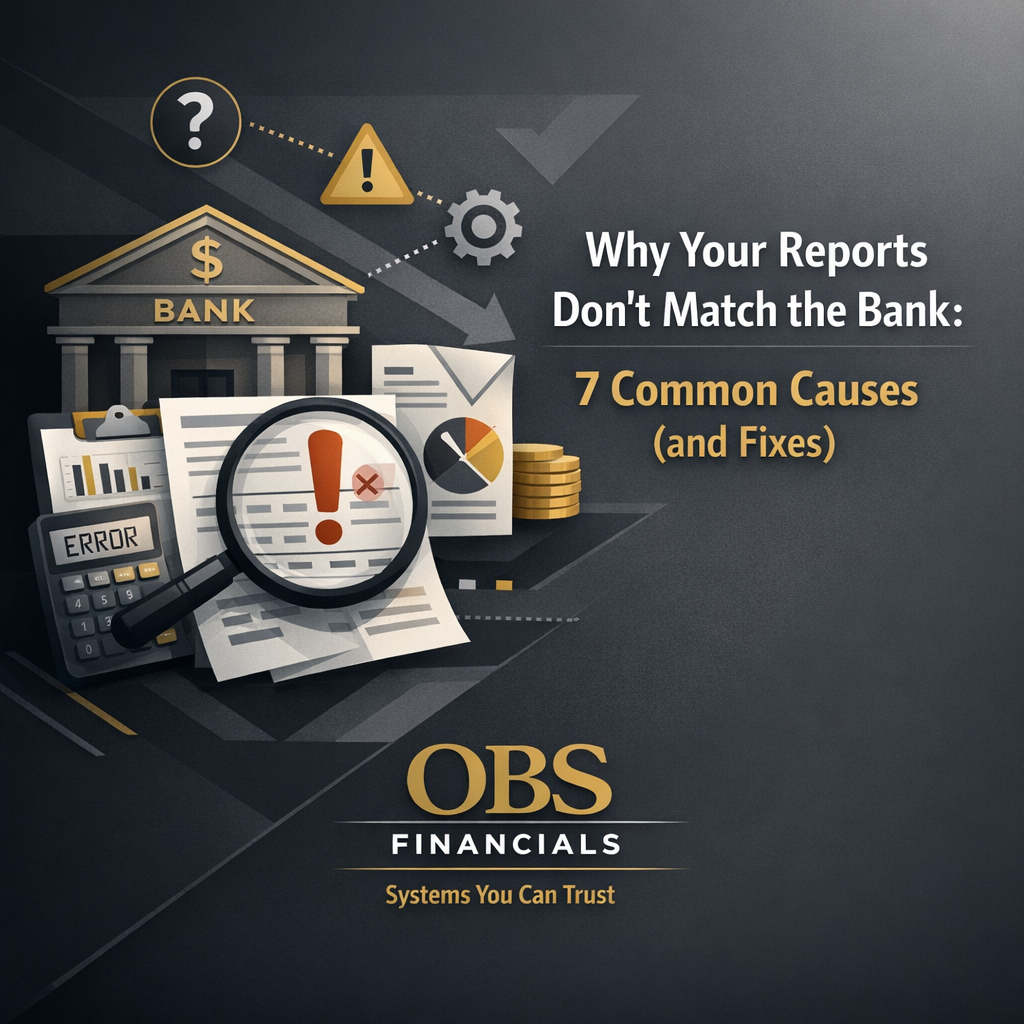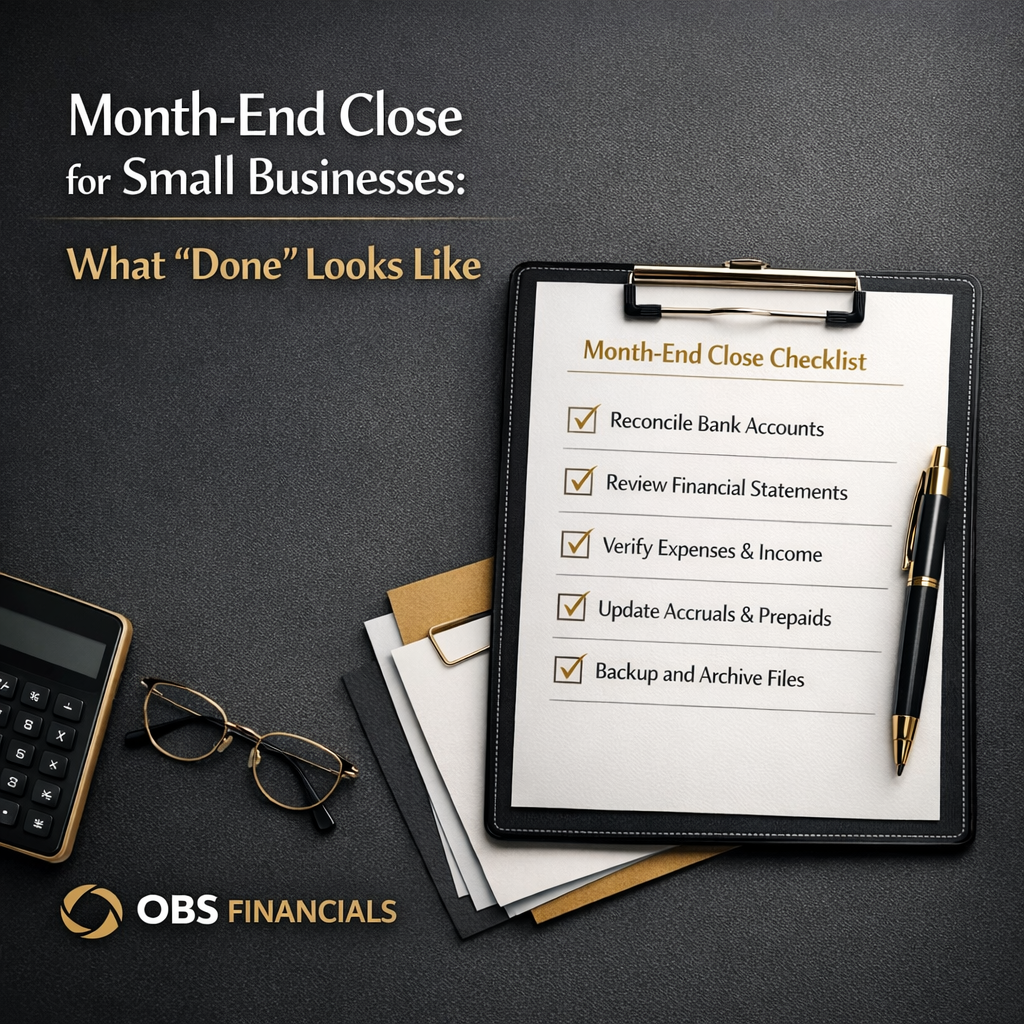When it comes to managing the finances of your small business, the temptation to handle everything yourself can be strong. After all, DIY financial management seems like a cost-effective way to keep your expenses in check and ensure that every dollar is accounted for.
However, this approach often overlooks the broader implications and the hidden costs that can significantly impact your business’s long-term health and growth.
As a business owner, your time and expertise are invaluable assets. Yet, many entrepreneurs find themselves bogged down in financial tasks such as bookkeeping, expense tracking, and tax preparation. These tasks, while essential, divert your attention away from core activities like customer service, product development, and strategic planning—areas that are vital for driving growth and achieving your financial goals.
In this article, we will delve into why DIY financial management can ultimately cost your business more in the long run. From the time spent on mundane financial tasks to the risks of errors and the lack of a long-term financial strategy, we will explore how outsourcing financial management or seeking the help of a financial advisor can be a more prudent and profitable decision.
The Hidden Costs of Inexperience
Lack of Expertise
One of the most significant hidden costs of DIY financial management is the lack of expertise. While business owners are often skilled in their specific industry, financial management requires a specialized set of skills that include tax planning, financial statement analysis, and cash flow management.
Without a deep understanding of these concepts, it is easy to overlook critical financial nuances that can have profound implications for the business. For instance, optimizing tax strategies and ensuring compliance with tax regulations can be complex tasks that require more than just basic knowledge.
Inexperienced financial management can lead to missed opportunities for tax savings and even result in costly penalties for non-compliance.
Moreover, interpreting financial documents such as balance sheets, profit and loss statements, and cash flow statements is essential for making informed business decisions. Without the necessary financial literacy, business leaders may struggle to analyze these documents effectively, leading to poor decision-making that can affect the overall health of the business.
This lack of expertise can also hinder the ability to explain key financial insights to stakeholders, which is essential for attracting investors and maintaining transparency.
Mismanagement of Funds
Mismanagement of funds is another critical issue that arises from inexperience in financial management. Without a solid financial plan, businesses often find themselves facing cash flow crises, high-interest debt, and inefficient allocation of resources. For example, failing to separate business and personal finances can lead to a blurred line between the two, making it difficult to track expenses and revenues accurately.
This can result in poor budgeting, where essential business expenses might be overlooked or personal expenses might be incorrectly attributed to the business.
Additionally, mismanaging cash flow can lead to severe financial strain. Forecasting cash flow and managing it effectively is vital for ensuring that the business has enough liquidity to meet its obligations. Inexperienced financial management might fail to anticipate cash flow gaps, leading to the need for high-interest loans or even bankruptcy.
Effective cash flow management involves planning for both short-term and long-term financial needs, which is a skill that requires experience and expertise .
Time Spent vs. Time Saved
Opportunity Cost
When you decide to manage your business’s finances on your own, you are not just investing time, but you are also incurring an opportunity cost. Opportunity cost is the value of the next best alternative that is given up when a choice is made.
In the context of DIY financial management, this means the potential benefits you could have achieved if you had allocated that time and resources differently. For example, the time spent on bookkeeping, tax preparation, and financial analysis could be used to focus on marketing, product development, or customer service, which are often more critical for driving business growth and revenue.
Calculating the opportunity cost can help you understand the true impact of your decision. If you spend 10 hours a week on financial tasks, that’s 10 hours you could have spent on other business activities that might generate higher returns. For instance, if you could have used that time to develop a new product or enhance your marketing strategy, the potential returns from those activities might far exceed the benefits of handling finances personally.
This perspective highlights the importance of evaluating whether the time spent on DIY financial management is truly worth the opportunity cost.
Efficiency and Automation
Another significant aspect to consider is the efficiency and automation that professional financial management or financial planning software can bring. When you handle finances on your own, you often rely on manual processes that are time-consuming and prone to errors.
In contrast, financial advisors and advanced financial planning software can automate many of these tasks, ensuring accuracy and speed. This automation not only saves time but also reduces the risk of errors, which can be costly in terms of both money and reputation.
Moreover, financial advisors have access to a range of tools and resources that can streamline financial management. From cash flow projections to tax planning, these tools can help in making informed decisions quickly and efficiently. This efficiency allows business owners to focus on their core competencies, knowing that their financial affairs are being managed professionally.
In the long run, this can lead to better financial health, reduced stress, and more time to dedicate to strategic growth initiatives .
Long-Term Financial Strategy and Planning
Lack of Long-Term Planning
One of the critical shortcomings of DIY financial management is the lack of a comprehensive long-term financial strategy. Without a well-thought-out plan, businesses often focus on short-term gains and immediate needs, neglecting the long-term implications of their financial decisions.
Long-term financial planning is essential for aligning financial strategies with overall business objectives, such as sustainable growth, debt management, and investment in key areas.
A long-term financial plan provides a clear outlook into the future, allowing businesses to anticipate and prepare for various financial scenarios. This includes creating a roadmap for budgeting, capital planning, and revenue forecasting, which are essential for maintaining a healthy financial position. Without such a plan, businesses may find themselves unprepared for future challenges, leading to reactive rather than proactive decision-making.
Risk Management
Effective long-term financial planning also involves robust risk management. When managing finances on your own, it can be challenging to identify and mitigate potential financial risks.
Professional financial planning, however, includes a thorough analysis of potential risks and the development of strategies to address them. This could involve diagnosing fiscal distress early, pre-emptively taking action to mitigate forecasted financial issues, and ensuring compliance with financial policies.
Risk management is not just about avoiding negative outcomes but also about capitalizing on opportunities. A well-crafted financial plan helps in identifying areas where the business can take calculated risks to achieve growth. For instance, managing cash flow effectively can help in making strategic investments or expanding operations without jeopardizing the day-to-day operations of the business.
This balanced approach to risk ensures that the business remains resilient and adaptable in the face of changing market conditions .
Conclusion
Whether you’re launching your first venture or managing a fast-growing company, it is important to recognize the limitations and risks associated with DIY financial management. The lack of expertise, mismanagement of funds, and absence of long-term financial planning can all lead to significant costs and missed opportunities. By seeking the help of a financial advisor or utilizing professional financial management services, you can gain the clarity, confidence, and calm needed to drive your business forward.
OBS Financials, with over a decade of experience and certified expertise, is dedicated to helping business owners succeed. Our services extend beyond bookkeeping to include financial cleanup, payroll, monthly bookkeeping, and CFO-level insights, all provided at a flat rate and insured for your peace of mind.
Book a free consultation today to discover how OBS Financials can help you reclaim your time, reduce stress, and make smarter financial decisions — all with a partner who treats your business like their own.
FAQ
What are the key components of a financial plan that small businesses should include to avoid financial mismanagement?
The key components of a financial plan for small businesses include:
- Income statement : Reports net profit or loss, including revenue, cost of goods sold, operating expenses, and net income .
- Balance sheet : Shows assets, liabilities, and shareholder equity .
- Cash flow statement : Projects cash inflows and outflows .
- Sales forecasting : Predicts future sales .
- Expense outlay : Details expected expenses .
- Key financial metrics : Derives ratios and other metrics from financial statements .
How does regular expense tracking impact the financial health and profitability of a small business?
Regular expense tracking enhances financial health and profitability in small businesses by providing financial transparency, improving budget management, ensuring tax compliance, preventing fraud, and enabling better decision-making. It helps in identifying areas to cut costs, streamlining operations, and making data-driven decisions to boost profitability and stability .
What are the common financial mistakes that small businesses make when managing their finances DIY, and how can they be avoided?
Common financial mistakes include mixing business and personal finances, which can be avoided by opening separate business bank accounts and using business credit cards only for work expenses . Ignoring cash flow management can be mitigated by tracking timing of revenue and expenses to ensure sufficient funds to cover costs .
Failing to keep accurate records can be avoided by using accounting software and maintaining precise financial data . Not budgeting or updating budgets regularly can be addressed by creating a comprehensive budget plan that accounts for income, strategy changes, and business growth .
How can small businesses benefit from using professional financial management tools and services instead of DIY approaches?
Small businesses can benefit from professional financial management tools and services by streamlining financial processes, automating tasks like invoicing and expense tracking, reducing errors, and improving cash flow management. These tools also provide real-time financial insights, facilitate budgeting, and ensure compliance with regulatory requirements, ultimately enhancing financial accuracy and efficiency .




